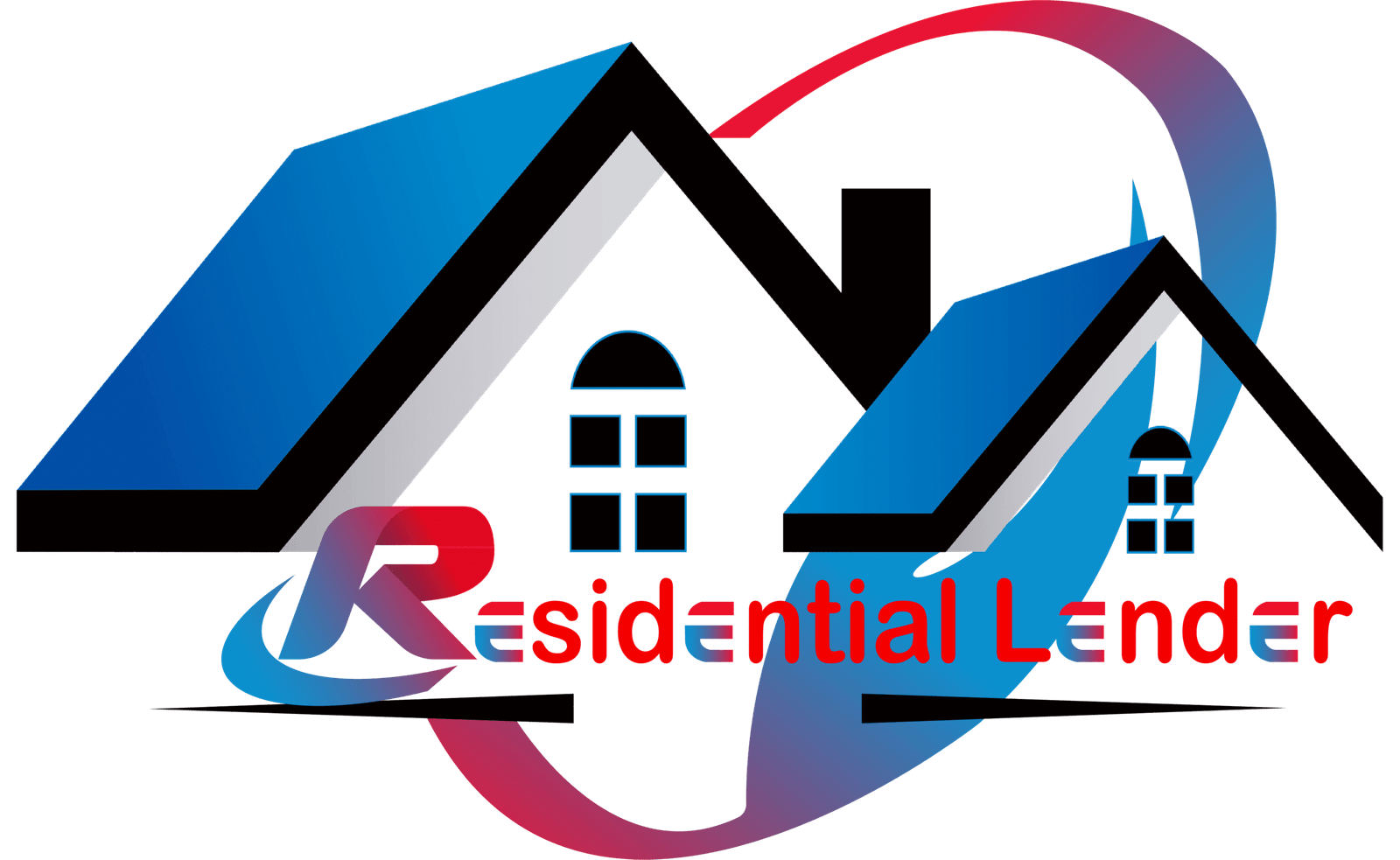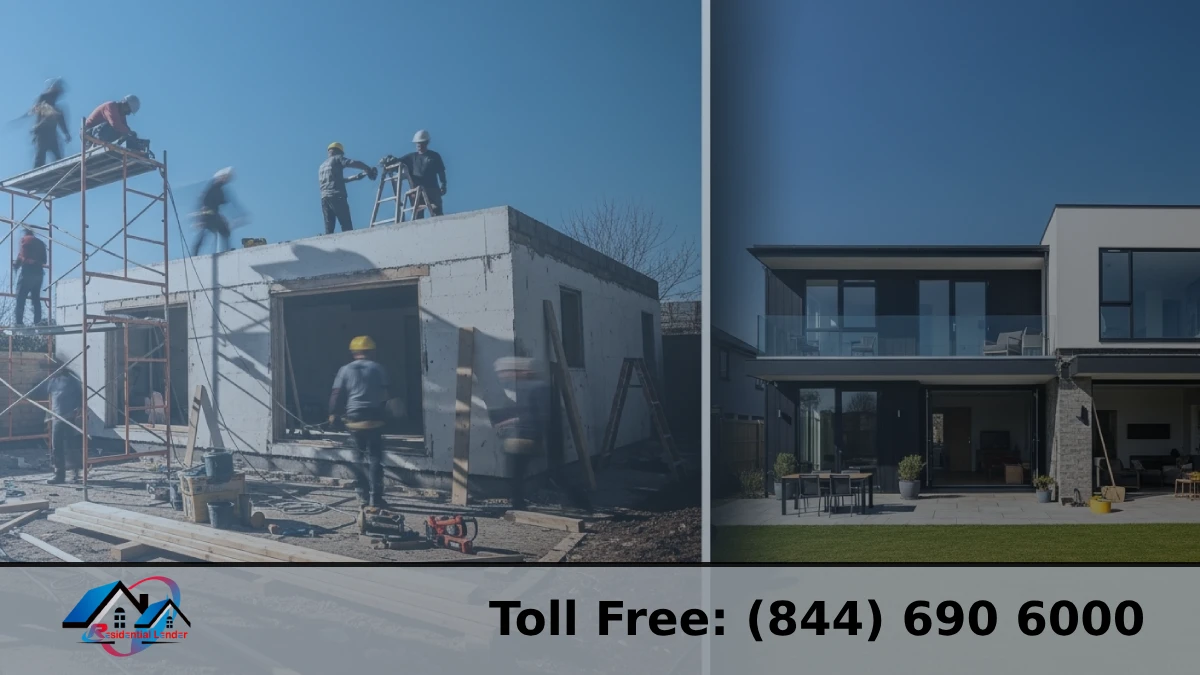Have you ever thought about how real estate could help you make money? Residential properties can be great investments because they can bring in steady rental income and value over time. But figuring out how to get a home investment loan can be challenging.
There’s no need to worry about getting a residential investment loan because we’ll show you everything you need to know. You’ll get the information and confidence you need to start dealing in real estate. You’ll learn about the different types of loans and how to apply for them.
Even though residenciallender.net focuses on commercial property investment loans, we know how valuable it is to invest in residential real estate. This blog series is about giving you the information you need to make intelligent choices and find out how to make money from residential homes.
How to Get Residential Investment Loans: How to Pay for Your Way to Rental Income
Let’s look closer and find out what home investment loans are.
Financing Your Investment Dreams
Residential investment loans are not the same as regular mortgages for primary residences. They are specially made to help people buy residences to rent out and make money. If you plan to rent it out to people, this could be a single-family home, a building with several units, or even a condo.
Key Differences
compared to mortgages for primary homes, residential investment loans usually
- Require a larger down payment: This is generally between 15% and 25% of the property’s value, while the down payment for the owner’s home is at least 3% to 5%.
- Come with higher interest rates: This is because investment homes come with a slightly higher risk.
- Have stricter qualification requirements: Lenders will look closely at your credit score, the amount of debt you have compared to your income, and any rental history.
Financing Flexibility
Even with these changes, residential investment loans make it possible to finance a wide range of properties that bring in money, such as:
- Single-family homes: These are a classic choice for rental homes that offer steady income and the chance for their value to rise.
- Multi-family buildings: It let you receive rent from more than one tenant, increasing your income potential and making management more difficult.
- Townhouses can be a good compromise between single-family homes and apartment buildings with multiple units; they have more units and are easier to handle than larger ones.
You’ll be well on your way to choosing the right home investment loan for your rental property once you understand these key points.
How to Get a Residential Investment Loan: How to Get Up That Hill
Now that you know residential investment loans, let’s discuss how to get one. Now that you know this, you can boldly move through the process.
Pre-qualification: Taking the First Step
It’s like taking a test drive before you buy something. Based on how much money you have, you can get a rough idea of how much you can borrow. The process is quick and easy and is usually done online or over the phone. Even though it doesn’t promise final approval, it gives you helpful information. It helps you focus on properties that fit your budget.
Loan Application and Documentation: Gearing Up for Success
You must officially apply for the loan once you’ve found a possible residence. To do this, you need to send in a complete application package that usually includes the following:
- W-2s and tax returns
- Proof of income and assets
- Credit score verification
- Information about the investment property (purchase agreement, appraisals, etc.)
Underwriting: Unveiling Your Financial Fitness
Underwriting is the process by which lenders check to see if you can repay the loan. They carefully review your financial papers to see how creditworthy you are, how stable your income is, and how healthy your economy is. This is where the in-house financing skills of residentiallender.net shine. Our experienced team simplifies the process so your loan application is looked at quickly and easily.
Loan Approval and Closing: Reaching the Summit
The lender will agree to give you the loan if everything goes well, and you’ll get a loan promise that spells out the exact terms and conditions. You’ll sign legal papers and complete your investment property purchase at closing. This is where the loan is officially signed.
This information will help you understand what you need to do to get a loan to buy a house and start making money from real estate. Stay tuned for our next blog post, where we’ll talk about loan applications and the needed information.
Know Your Numbers: Important Things to Think About When Getting a Residence Investment Loan
It is essential to understand how loans work. Still, it is also necessary to know what lenders look at when they decide whether to give you a home investment loan. You will have a much better chance of getting the loan if you are ready for these things.
Down Payment: Building a Strong Foundation
Most of the time, a more significant down payment is needed for residence investment loans than regular mortgages. This can be anywhere from 15% to 25% of the home’s value. The goal is to show the lender how committed you are to the investment and give yourself a financial cushion in case some repairs or openings come out of the blue.
Credit Score and Debt-to-Income Ratio (DTI): Demonstrating Financial Strength
Credit score and DTI ratio are ways for lenders to determine how stable your finances are and how well you can repay loans.
- Credit Score: A good credit score (above 680.0) shows that you’ve been smart about getting money in the past. This makes it more likely that you will be approved for a loan and may even help you get a better interest rate.
- Debt-to-Income Ratio (DTI): This metric looks at how much monthly debt you have, including the planned mortgage payment, compared to your monthly gross income. If your DTI ratio is lower, you can handle more debt. Lenders consider you a better client.
Type of Property: Making Your Loan Fit Your Investment
The loan terms and interest rates you’ll be offered may depend on the type of property you choose to buy:
- Multi-family buildings: While they might bring in more rental income, they usually come with stricter loan requirements and higher interest rates because handling more than one tenant is considered a more significant risk.
- Single-family homes: Loan standards and interest rates are usually less strict for single-family homes than for multi-family residences. But there will only be one source of rental cash.
- Townhouses: If you look at loan standards and interest rates, they are usually between single-family homes and multi-family buildings.
By knowing these basic things, you can go into the loan application process with a clear plan, improving your chances of getting the right home investment loan for your goals with the rental property.
Choosing Your Partner: Correspondent Lender vs. Traditional Lender
You now know about residential investment loans and how to apply for them. The next step is to think about who will help you. Let’s look at what makes correspondent lenders, such as residenciallender.net, different from traditional lenders like banks and credit unions.
Correspondent Lenders: Your One-Stop Shop
You can get loans from a lot of different lenders through correspondent lenders. We find loans and make them, but unlike standard lenders, we don’t keep them. Instead, we quickly match your unique needs with the best loan program from our pool of lenders. This means several good things for you:
- More Vast Loan Options: Regarding loan programs, correspondent lenders are more flexible than regular lenders. This lets us find the best person for your rental property, no matter what kind it is or how much money you have.
- Faster Processing for residentiallender.net: Many correspondent lenders, like residentiallender.net, have their own screening teams. This makes the loan acceptance process more accessible, which could mean you can close on your rental property faster and become the owner sooner.
Traditional Lenders: The Familiar Face
People can get mortgages straight from traditional lenders like banks and credit unions. Even though they might be helpful, they usually have
- Limited Loan Options: They can only give out as many loans as associate lenders can. This could make finding the best rates and options for your investment goals harder.
- Slower Processing Times: Traditional lenders often use outside screening teams, which makes the loan application process take longer.
The Choice is Yours
You can choose the best person to help you with your home investment if you know the differences between correspondent and traditional lenders. Regarding real estate owners, correspondent lenders like residenciallender.net are a great choice because they offer a more comprehensive range of loan options and may be able to process loans faster.
The Power of a Superbroker for Investment Loans to Speed Up Your Search
In the last talk, we discussed correspondent lenders and how they provide a more comprehensive range of loan choices than standard lenders. However, did you know that some cousin lenders, such as residentiallender.net, act even further as superbrokers?
The Superbroker Advantage: Your Investment Loan Champion
A super broker does more than just put you in touch with a group of lenders. We constantly shop around your loan application to different lenders in our network as your dedicated advocate. This will help you get the best rates and terms for your rental home and your budget.
Maximizing Your Investment Potential
A great broker like residentiallender.net can help you in these ways:
- Unbiased Expertise: We don’t just push loans from a few companies like some do; we work to find the best loan for your needs.
- Competitive Rates: We can get you the best interest rates and loan terms through our network by shopping around your application.
- Simplified Process: Our skilled professionals handle many lenders, which saves you time and effort.
Traditional Lenders vs. Superbrokers: A Clear Distinction
A super broker may offer more freedom and customization than a conventional lender, even though both provide in-house loan options. For a standard comparison, here it is:
| Feature | Traditional Lender | Superbroker (like residentiallender.net) |
| Loan Options | Limited | Wide Range |
| Focus | Pushing own products | Finding the best fit for the borrower |
| Expertise | Lender-specific | Investment loan specialists |
| Shopping for Rates | No | Yes |
You get a vital partner in the investment loan process when you use the skills of a superbroker. We seek your best interests and ensure you get the best rates and loan terms to get the most money out of your rental property.
The Road to Real Estate Riches: Key Takeaways and Taking the First Step
In this blog series, we’ve learned much about the exciting world of home investment loans. Here are the most important things to remember:
- You can use real estate as a source of income by getting a residential investment loan, which lets you buy homes to rent out.
- These loans’ down payment, qualification standards, and loan terms differ from those for traditional mortgages.
- The loan process includes pre-qualification, application, underwriting, and closing. Being ready for each step makes your application stronger.
- When picking a lender, think about correspondent lenders like residenciallender.net because they may offer more loan choices and process loans faster.
Your Investment Journey Starts Here
At residentiallender.net, our primary goal is to assist investors like you in obtaining loans for properties that can generate income. Our team of experts has the strength of a foreign lender and the one-on-one attention of a superbroker. We will search our network hard to find the best loan program for your needs, ensuring you get the best rates and terms possible.
You are now ready to put your money into real estate. For a complimentary meeting today, call residenciallender.net. I can help you find the right loan to make your investment dreams come true. Let’s talk about your goals!
FAQs
What are the benefits of using residential investment loans?
Using residential investment loans has these pros:
- Make money from renting out your home.
- Construct wealth by letting the property’s value rise over time.
- Make your investments more diverse.
What are the drawbacks of using residential investment loans?
The cons of getting residential investment loans are:
- A more significant down payment is needed than with a traditional mortgage.
- It might have tighter requirements for who can get it.
- As a landlord, you have extra duties, like managing tenants and making repairs.
What credit score is required for a residential investment loan?
Generally, a credit score above 680 is preferable.
What debt-to-income ratio (DTI) is acceptable for qualification?
Lenders look for a lower DTI ratio, typically below 36%.
How long does the loan approval process typically take?
This can vary depending on the lender but can range from a few weeks to several months. Correspondent lenders with in-house underwritings, like residentiallender.net, may offer faster processing times.
What types of properties can be financed with residential investment loans?
Residential investment loans can be used to buy the following types of properties:
- Single-family homes
- Multi-family buildings (duplexes, triplexes, etc.)
- Townhouses
Do interest rates differ for various property types?
Multi-family buildings may have slightly higher interest rates due to the increased risk.
What are the advantages of using a correspondent lender or superbroker like residenciallender.net?
Pros of working with a super broker or correspondent lender like residentiallender.net:
- A more comprehensive range of loan options to choose from.
- Potentially faster processing times with in-house underwriting (for residenciallender.net).
- Expertise in securing financing specifically for income-generating properties.








